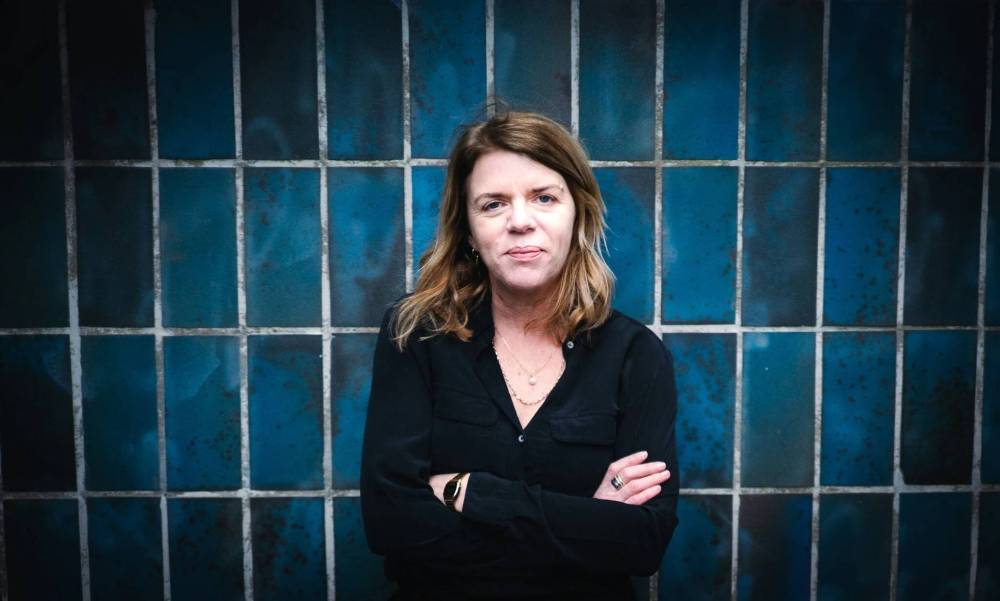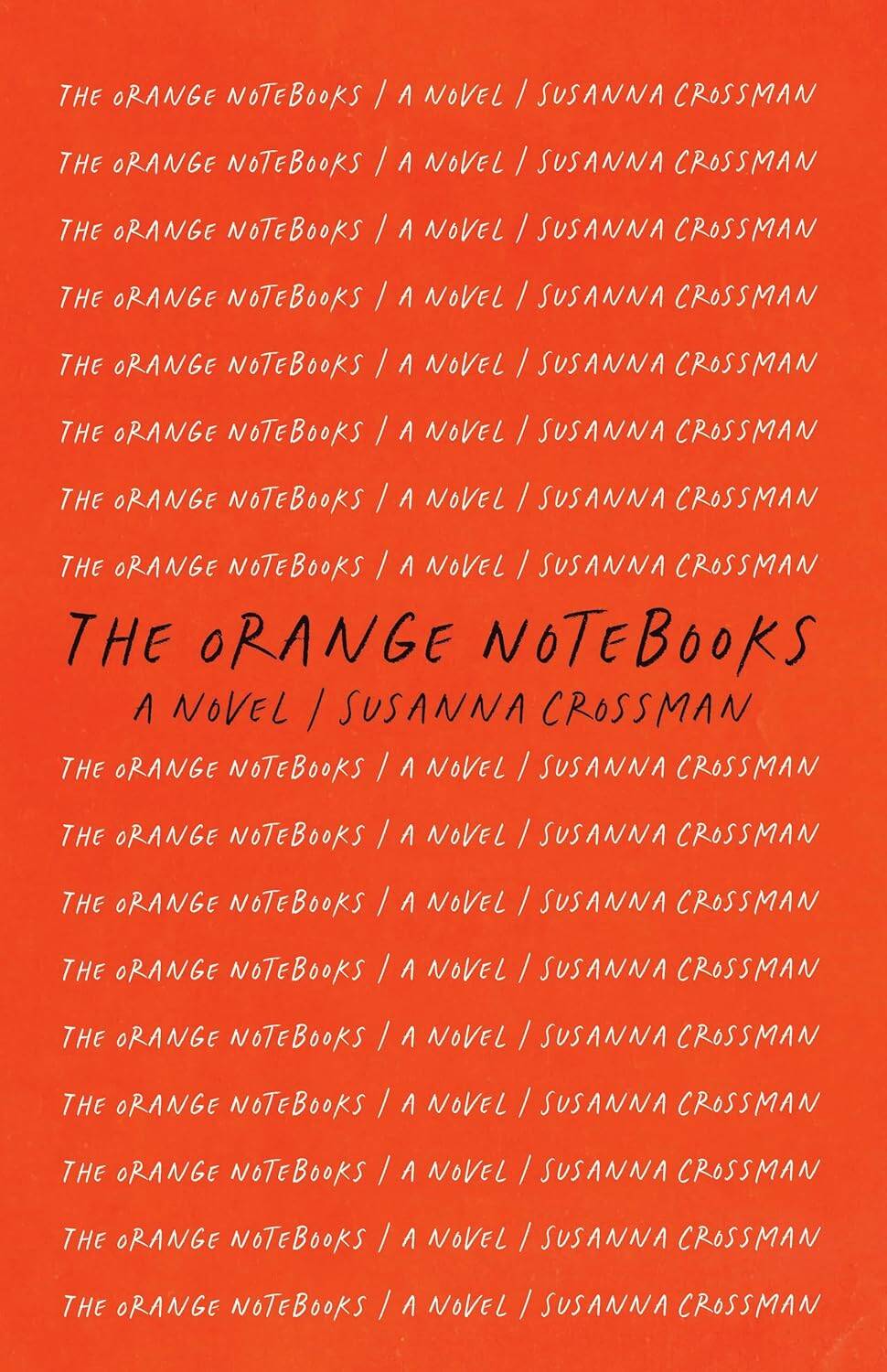Myth and mourning
The Orange Notebooks navigate love, longing and a quest for a lost child
Advertisement
Read this article for free:
or
Already have an account? Log in here »
To continue reading, please subscribe:
Monthly Digital Subscription
$0 for the first 4 weeks*
- Enjoy unlimited reading on winnipegfreepress.com
- Read the E-Edition, our digital replica newspaper
- Access News Break, our award-winning app
- Play interactive puzzles
*No charge for 4 weeks then price increases to the regular rate of $19.00 plus GST every four weeks. Offer available to new and qualified returning subscribers only. Cancel any time.
Monthly Digital Subscription
$4.75/week*
- Enjoy unlimited reading on winnipegfreepress.com
- Read the E-Edition, our digital replica newspaper
- Access News Break, our award-winning app
- Play interactive puzzles
*Billed as $19 plus GST every four weeks. Cancel any time.
To continue reading, please subscribe:
Add Free Press access to your Brandon Sun subscription for only an additional
$1 for the first 4 weeks*
*Your next subscription payment will increase by $1.00 and you will be charged $16.99 plus GST for four weeks. After four weeks, your payment will increase to $23.99 plus GST every four weeks.
Read unlimited articles for free today:
or
Already have an account? Log in here »
He turned. He looked back, precisely when he seemed to have the cosmic solution in his hands — and that was his terrible undoing. That was Orpheus’s mistake.
Susanna Crossman reimagines turning and looking back here, in a kind of experiment in genre. The Orange Notebooks is an adventure story, to be sure, but it is also part aching memoir, part lyrical poetry, part polychromatic kaleidoscope, part surreptitious “found footage” but, most thoroughly, part primordial myth.
Crossman seems to dwell, as her writing does, between worlds. She grew up in the U.K. in a “utopian commune” about 50 years ago but now resides in France, writing (both essays and fiction), lecturing and practising arts therapy. Her 2024 memoir, Home Is Where We Start, set a lingering tone of journeys, nostalgia and psychological reflection.

Morgane Michotte photo
Susanna Crossman’s novel carries a tone of nostalgia and reflection that’s similar to that of her 2024 memoir, Home Is Where We Start.
The Orange Notebooks reprises that tone, beginning with the pretense that we are being handed a set of journal reflections written by our protagonist, “Anna,” who herself lives in liminal spaces. She too was raised in England but grew to adulthood as a server on an English Channel ferry, married a dashing Frenchman with an exotic name, Antton (the two Ts a vestige of his Basque heritage) and eventually settled with Antton in a lovely rural French home, both as teachers.
Anna’s specialty is languages, but her wider sensibilities are all about colours. In these notes in her little orange books, she is forever explaining etymologies but equally and frequently marvelling at individual colours — and, even more so, the juxtapositions of colours.
The trick, however, is that Anna is not chronicling her linguistic and esthetic musings in that country home — she’s doing so in a mental health ward. She and Antton have recently met the worst of all tragedies, the death of their child, six-year-old Louis (known as “Buba”). The story of angelic Buba’s death is finally told near the end of the book, but its details are not particularly important. Its simple existence is the lone, devastating point.
Anna is not confined to the institution but chooses to stay there for a time, to undergo some kind of conversational therapy, and to attempt to work her way through her abysmal grief by writing about it in utterly eclectic ways.
She addresses Buba directly, reminding him of what he had done or said or, especially, interrogated; she tells him the story of her meet-cute with his father. She reaches to her days on the English Channel, back and forth, gushing about her exuberant ferry co-worker, Miguel, who regales her with stories of his globe-trotting affairs with worldly men and his artistic tribulations and triumphs, becoming her lifelong confidant and, one day, virtual godfather to Louis. She tries to make more exhaustive sense of the deeper, difficult family biographies of herself and of Antton.
All this in these notebooks, written in that institution. There she meets and portrays an entire theatre of characters, one of whom, Yann, convinces her to undertake a journey, you might say, with him.
Greco-Roman myth lurks here from the first page, but by the final act of the book is centre stage. Anna retells, overtly, the story of Orpheus and Eurydice: of how Orpheus dared to venture to the Underworld to retrieve his beloved wife from the eternity of death and won her impossible reprieve with his gorgeous music, only to lose her again because he so stupidly, lovingly looked back at her just as he was edging her to their resuscitated, conjoined bliss.
This is what Anna herself does. It is strikingly similar, but it is also fundamentally different. Anna does not go alone — she goes with Yann, her companion but, aptly, also her ferryman, her Charon. She does not go to her lover, her Eurydice — she goes to her child, her Persephone. She has nothing with which to woo the gods; she simply goes to them, almost naked. She does not perform to persuade — she acquiesces.
None of this is magical or supernatural or surreal. It is all entirely realistic, convincing and heartbreaking.

The Orange Notebooks
But Crossman assigns herself so many artistic and esthetic tasks here that she ends up having to sacrifice swaths of them for the sake of simply getting to the end. The notebook conceit breaks down. The etymologies are at first thematic but then silently announce their departure. The vibrant colours flit and enchant, but only for so long.
Ironically and unfortunately, the colour Crossman finally settles most on — beige — is exactly what plagues the final product. More than once, she litters the page with repetitions of this paradigmatically dull adjective, all caps and italics, all Shining-like, hoping for resonance but achieving only, well, beige. She is trying to proclaim that Anna’s grief is extraordinary in exactly the same breath as conceding it is ordinary. And that is part and parcel of why it is all so very, very sad.
The Orange Notebooks is surely a grand and noble effort. Parts of Anna’s story absolutely gut the reader. Many passages command an immediate re-read for the sole purpose and joy of savour. There is a delightful charm to Miguel and Yann, just as there is to Antton. There are interesting people in this world.
Throughout, Crossman’s gift for language is not slight, nor is her eye for image blurred. It stands as a read of a sadness, profound and unfinished.
Laurence Broadhurst teaches English and religion at St. Paul’s High School in Winnipeg.


